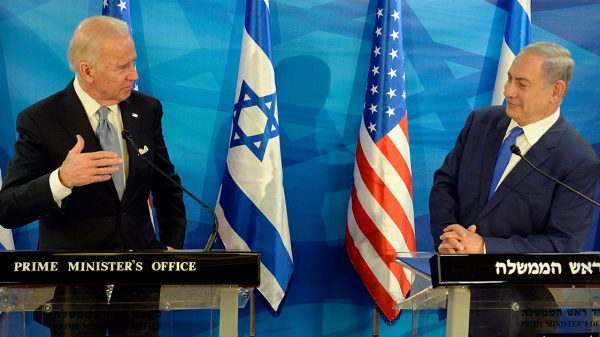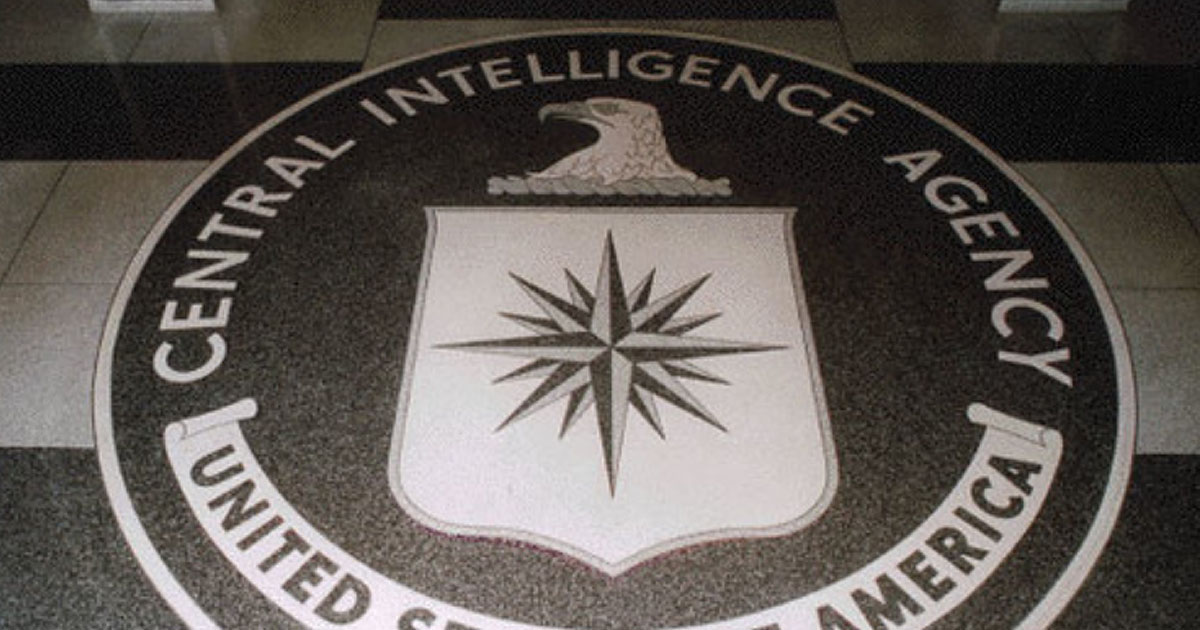A senior official at the Central Intelligence Agency (CIA) recently sparked controversy after sharing pro-Palestinian imagery on social media, prompting an immediate response from the agency. Amy McFadden, the associate deputy director for analysis at the CIA, posted a Palestinian flag as her Facebook background, which ignited a heated debate and led to an agency-wide reminder about the guidelines regarding social media usage.
The incident occurred just two weeks after the brutal Hamas attack that had already escalated tensions in the region. McFadden’s public expression of pro-Palestinian sentiment hinted at divisions within the Biden administration and raised questions about the impartiality of key intelligence figures.
Following the incident, the CIA sent an internal email warning staff not to post anything political on social media. This reminder underlined the importance of maintaining political neutrality, especially in the context of international conflicts where US interests are at stake.
The situation has led to discussions about the role and responsibilities of intelligence officials in expressing personal political views publicly. While freedom of speech is a cherished American value, there are concerns about how such posts could impact the perceived objectivity of the agency and its ability to execute its mission effectively.
Pro-Palestine activists have also embedded themselves throughout the Joe Biden administration, reportedly releasing a memo earlier this month condemning Biden for being too friendly to Israel.
In a leaked memo obtained by Politico, a group of State Department staffers criticized President Joe Biden for his pro-Israel stance during the ongoing conflict between Israel and Hamas. The memo calls for the president to publicly criticize Israel’s actions and demand a ceasefire, stating concerns about the perception of bias and dishonesty on the part of the United States.





































CPO Bill
November 29, 2023 at 6:59 pm
OFF With their heads!
Bob
November 29, 2023 at 7:15 pm
The official was not afraid of any repercussions for her unadulterated racism and fascist support of terrorism against democracy. I hear here, no mention of her being so much as receiving a stern admonition. If we don’t reclaim our Republic from the likes of these hate-filled isms, we will lose our freedoms forever. I have spoken; so it is written.
stevor
November 29, 2023 at 7:35 pm
the CIA is part of the problem over there (and they’re probably “working” with the Mossad, too):
https://rumble.com/v3rgcz7-hamas-insider-blows-whistle-cia-created-us-to-advance-new-world-order.html
Russ
November 29, 2023 at 7:54 pm
It has been clear for some time that the CIA does not represent our country anymore. This is just more proof.
Garyl
November 29, 2023 at 7:56 pm
Anyone enabling terrorists have no business being in any government position.They should all be fired immediately. White house cia fbi any of them. These institutions especially.
Joan
November 29, 2023 at 8:57 pm
Joan
After what Hamas did to the civilian Jewish people, I don’t know how these people can support them. It is a sad world we live in. There should be a major investigations into the hold Federal Government.This will not happen as long as the Democrates have control!!
Cheyenne
November 30, 2023 at 7:42 pm
Many alternative online news sources say that all 3 letter agencies are going to be revamped, and after the housecleaning, will be streamlined, and working in the best interest of Americans.
I hope they are right.🇺🇲🇺🇲🇺🇲
C.W. LAUDERDALE
November 30, 2023 at 8:11 pm
Americans, still feeling sympathy for Muslim terrorists, LISTEN UP!
As an old soldier who was involved in counter-terrorism operations targeting Muslim terrorists for most of my 29 year career I have something to say to those among you who are non-Islamic males and/or females, and a little something extra to say to you folks who are not sure as to which gender you want to be and/or want to be with. If you support Muslim terrorists activities and/or sympathize with the Muslim community in general suggest you listen up. Before I render my remarks I challenge all non-Islamic persons to carefully study the strategies/tactics presented by the Profit (supposedly given to him by the angel Gabriel and blessed by God himself) for Muslims to employ in order to achieve one of their primary objectives, that of ridding the world of non-believers.
If after you have completed your studies (in which you will discover just how effective the Muslim community has been over the last 1400 years in achieving their objective of not only eliminating many non-believers, but terrorizing and/or brainwashing many others into becoming ‘good little believers’) you still support Muslims over any segment of the non-Muslim community, I say to each of you the following.
“The males among you are sadists, fools, and cowards. The females among you are masochists, fools, and cowards. And for you ‘gender differential folks’ who think Christians, Jews, Conservatives, others are less than supportive of your various preferences let me share some of the more than just unpleasant experiences of my career. I cannot report the precise number of bodies of males and females I have encountered with their sexual parts rather sloppily removed. According to some of my interpreters/guides I was witness to a standard practice used to persuade the followers of Islam to follow the paths mandated by the Profit and God for their assigned genders.
Though I cannot muster up a significant level of sympathy for those among you who have allowed various politicians, academicians, bureaucrats, and/or the media to completely load your brains with propaganda and/or pure BS; I will assist you in your conversion to Islam. Yes, believe it or not I teach classes on the eight prayers you will need to learn in order to begin your conversion to Islam (kind of my way of helping the cowards among you escape much unpleasantness). Oh, you will need to bring your own rug.
Last, I do have some good news for you females who are considering conversion. When you convert to Islam you will save a ton of money on your wardrobe, makeup, education, social life, etc., etc., etc…, and most likely you will not have to work outside of your husband’s home!”
Oh, one last question if you please. Imagine yourself living in an American town very close to the border of a neighboring state and you wake up one morning to the sounds of gun shots, explosions, and the screams of your neighbors. After you come out from your hiding place you learn that a mob of persons from the neighboring state had not only destroyed many of the homes of your neighbors, but had killed, maimed, and/or kidnapped many women and children. What actions would you expect (demand) the authorities in your town and/or state to commence post haste?
Soldier/Cop/Grunt, Retired
george
November 30, 2023 at 8:20 pm
thought these people supported these types of terrorist groups?
Ted Weiland
December 1, 2023 at 11:13 am
This should not be misconstrued as support for Hamas.
IDENTITY CRISIS!
I wonder if the following quotations (all of them from recognized Jewish authorities) have something to say about the Zionists’ claims to alleged fulfilled prophecies and the never-ending Middle East conflicts:
“Strictly speaking, it is incorrect to call an ancient Israelite a ‘Jew’ or to call a contemporary Jew an ‘Israelite’ or a ‘Hebrew.’” (Richard Siegel and Carl Rheins, eds., “Identity Crisis,” The Jewish Almanac, (New York, NY: Bantam Books, 1980) p. 3.)
That sentence is the opening sentence of the First Chapter entitled “Identity Crisis” of the 1980 Jewish Almanac. That today’s Jews are not genetic Israelites is also admitted in “The Jewish Encyclopedia,” the “Encyclopedia Judaica,” “The Universal Jewish Encyclopedia,” “The Standard Jewish Encyclopedia,” and by many of their historians.
According to three Jewish encyclopedias and Flavius Josephus, the entire Edomite nation was forced into converting to Judaism and became known as Judahites at the time of the high priest John Hyrcanus (Maccabaeus):
“…in the days of John Hyrcanus (end of the second century B.C.E.) … the Edomites became a section of the Jewish people.” (“Edom,” Encyclopaedia Judaica (Jerusalem, Israel: Encyclopaedia Judaica Company, 1971) Volume 6, p. 378.)
“They were then incorporated with the Jewish nation….” (“Edom, Idumea,” The Jewish Encyclopedia (New York & London: Funk and Wagnalls Company, 1904) Volume V, p. 41.)
“…from then on they constituted a part of the Jewish people, Herod [King of Judea] being one of their descendants.” (Cecil Roth and Geoffrey Wigoden, “Edom (Idumea),” The New Standard Jewish Encyclopedia (Garden City, NY: Doubleday & Company, Inc., 1977) p. 589.)
“…they submitted to the use of circumcision, and the rest of the Jewish ways of living; at which time … they were hereafter no other than Jews.” (Flavius Josephus, “The Antiquities of the Jews,” Josephus, (Grand Rapids, MI: Kregel Publications, 1960) Book XIII, Chapter IX, Verse 1, p. 279.)
We keep hearing that if we don’t bless the modern State of Israel (which America has been doing since at least 1948) that we will be cursed. However, it seems it’s been just the opposite, Since 1948, you name it, and there’s not an area in America wherein she hasn’t become worse off.
Could it because America has identified the wrong people as Israel.
Today’s Jews are not the only ones with an identity crisis.
For more, see free online book “The Mystery of the Gentiles: Where Are They and Where Are They Now?” at mission to israel dot org. Go to our Online Book page and scroll down to title.
Take our 10-question In Defense of True Israel Survey and receive a free copy of the book “Israel’s Identity: It Matters!”
Ted Weiland
December 1, 2023 at 11:15 am
Very few people today, even among those claiming to be Christians, understand what’s occurring in this latest Middle East conflict.
Here’s a clue and a teaser for these two messages. The following is the very first sentence of the first chapter of the 1980 Jewish Almanac, a chapter entitled “Identity Crisis”:
To understand what’s really going in the Middle East, it’s absolutely essential that the peoples known as Israelites, Edomites, and Ishmaelites be correctly identified.
We’ve recently posted Parts 1 & 2 of my two-part series entitled “Israel, Edom, & Ishmael: Three Keys to Understanding the Bible & Current Events.”
“Israel, Edom, & Ismael, Part 1” can be found at the bottom of our Broadcast Audio page at mission to israel dot org.
Take our 10-question “In Defense of True Israel” Survey in the right-hand sidebar and receive a free copy of the book “Israel’s Identity: It Matters!”